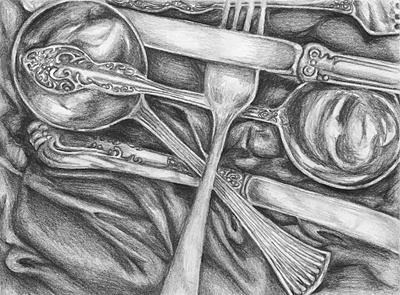All Nonfiction
- Bullying
- Books
- Academic
- Author Interviews
- Celebrity interviews
- College Articles
- College Essays
- Educator of the Year
- Heroes
- Interviews
- Memoir
- Personal Experience
- Sports
- Travel & Culture
All Opinions
- Bullying
- Current Events / Politics
- Discrimination
- Drugs / Alcohol / Smoking
- Entertainment / Celebrities
- Environment
- Love / Relationships
- Movies / Music / TV
- Pop Culture / Trends
- School / College
- Social Issues / Civics
- Spirituality / Religion
- Sports / Hobbies
All Hot Topics
- Bullying
- Community Service
- Environment
- Health
- Letters to the Editor
- Pride & Prejudice
- What Matters
- Back
Summer Guide
- Program Links
- Program Reviews
- Back
College Guide
- College Links
- College Reviews
- College Essays
- College Articles
- Back
Slaves to Sugar: A History of Addiction
Ten thousand years ago on the island of New Guinea sugarcane was discovered. The natives ate it raw. Sugar was an integral part of New Guinean culture, it was featured in their myths and priests drank its juice (now replaced with Coke) at religious ceremonies.
Sugar spread from island to island eventually reaching India. The Indians treated it much like the Islanders. They used it in ceremonies and used it as a medicine.
The Indians eventually discovered that cane juice, when heated, became sweet brown crystals. They brought this knowledge with them wherever they went. Eventually they reached the great school of Jundi Shapur.
Jundi Shapur was the world’s first university. Located in what is now Iran it was a merging point of knowledge from around the world. As early as 600 doctors at the school were writing about strange Indian medicine called sharkara , sugar.
When the Muslims began conquering the world they came to Jundi Shapur and learned about sugar. Wherever they went sugar followed. When they conquered Egypt it became the sugar capitol of the world.
The Egyptians knew that the whiter the sugar was the more people were willing to pay for it. They quickly discovered the way to make the whitest sugar of all. Sugar was a valuable “spice” that only the wealthy could afford. Muslim lords made a point of showing their wealth off by putting on lavish displays of sugar sculptures (their cooks mixed sugar with almonds to do this) at banquets.
While the Muslim world and the rest of Asia was alive with trade and growth Europe had cut itself off from the rest of the world since the fall of the Roman Empire. But that was about to change.
In 1095 Pope Urban II commanded all of Western Europe to invade the holy land. It was a gruesome conflict but also a trade of information. Through this Europeans were exposed to many new things including sugar.
After the crusades Europe began to trade with other lands and interact with the rest of the world. This trade brought only a small amount of sugar to Europe’s rich elite. For those who could afford it sugar became a necessity. So rare it was classified as a spice people were willing to do whatever it took to acquire it as we will soon see.
The sugar came to Europe on a small trickle of Muslim trade. When the Turks began conquering, they completely cut off this trade. Europeans were now addicted to sugar so they needed a new source of sugar. And so began the age of exploration. The truth of these events is not taught in history class and is far from glorious adventure. In 1425 Henry the navigator started the first successful European sugar plantation in the Canary Islands.
Later Christopher Columbus brought sugarcane to the Americas on his second voyage. In just a few decades Central America and Brazil were covered with hundreds of plantations, their forests and native populations destroyed.
As the natives were depleted the Europeans needed a new source of labor so they turned to Africa for slaves. Each year thousands of Africans were brought to the new world to be subjected to the cruel torment of slavery. They worked all day on some of the most dangerous jobs imaginable and were punished in unspeakably inhuman ways.
One overseer enjoyed cutting slaves then rubbing salt, pepper and lime into the wounds, a method he called pickling.
Of all the jobs on a plantation one of the worst was in the mill, where slaves constantly fed cane into the heavy grinding stones. The owner insisted that the mill never stopped, so an ax was kept at hand to sever any limbs caught in the stones and thus save a slave from a grisly death.
As you can see the history of sugar is a long, violent and horrendous tale. So dear reader ask yourself this ,“If I could go back in time and change it all thus losing sugar, white gold, the king of flavors would you do it? Is a substance ten times as addictive as cocaine and arguably as unhealthy, really worth all those wars and lives?”


This article was written by my friend Vishnu and I.